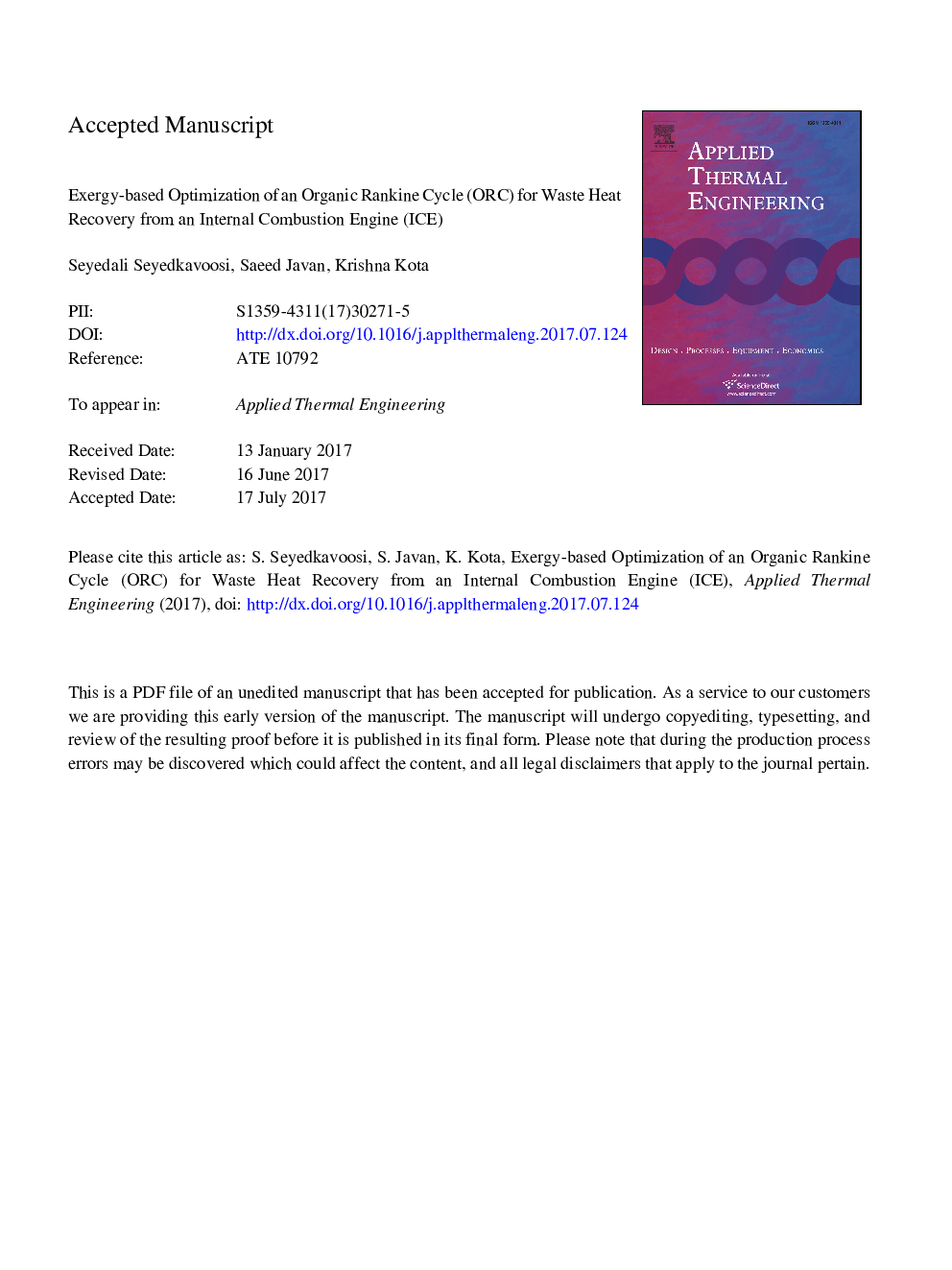| Article ID | Journal | Published Year | Pages | File Type |
|---|---|---|---|---|
| 4990450 | Applied Thermal Engineering | 2017 | 26 Pages |
Abstract
In this study, exergy analysis of a two-parallel-step organic Rankine cycle (ORC) for waste heat recovery from an internal combustion engine (ICE) is performed. A novel two-step configuration to recover waste heat from the engine coolant fluid and the exhaust gas simultaneously is first introduced. The working fluids considered for this heat recovery system are R-123, R-134a, and water. A comprehensive thermodynamic modeling of the cycle was performed and optimization of the system was carried out to observe the simultaneous effect of key design parameters on the system performance. The net output power and the exergy efficiency were used as the objective functions with a goal of maximizing them. The design variables for this study are the first and second step pressures of the cycle, the pump and the expander isentropic efficiencies, and the exhaust gas temperature after waste heat recovery. The results show R-123 as the best working fluid under the considered conditions, which generates 468Â kW of net output power with an exergy efficiency of 21%. A sensitivity study was also performed on the optimized design to identify the component that impacts the ORC performance the most.
Keywords
Related Topics
Physical Sciences and Engineering
Chemical Engineering
Fluid Flow and Transfer Processes
Authors
Seyedali Seyedkavoosi, Saeed Javan, Krishna Kota,
